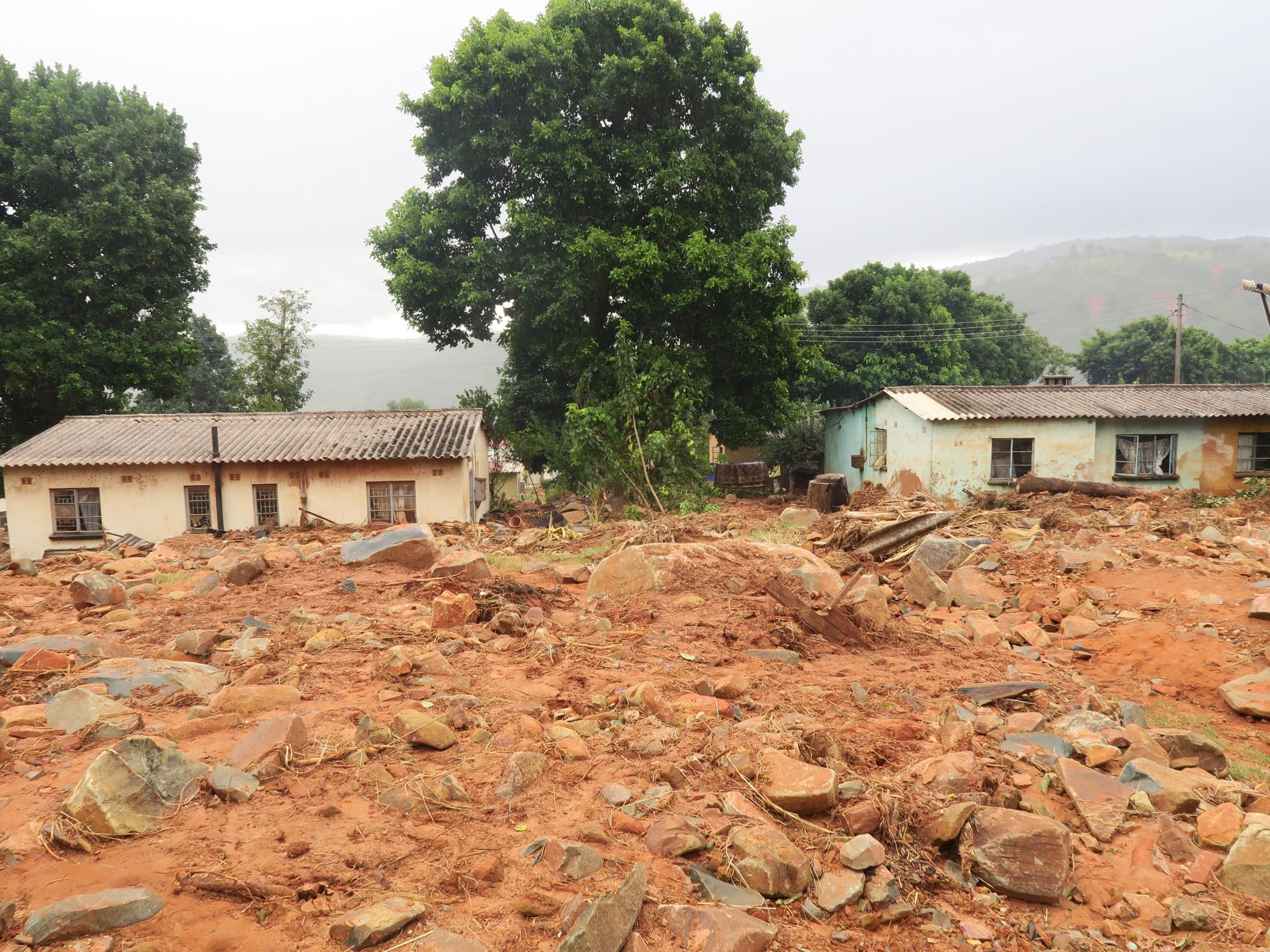Communities living in Chimanimani district, in the mountainous province of Manicaland, Zimbabwe, are slowly coming to terms with the havoc wreaked by cyclone Idai, which resulted in the death of more than 169 people in the area (according to the Civil Protection Unit).
Few will forget the night of 15 March 2019, when winds of 200 km an hour tore through the valley, bringing such heavy rains that rivers and their tributaries burst their banks, and landslides washed whole houses away. Community members have different tales to tell.
Heavy rock fall caused some to experience what felt like an earthquake. Others heard sounds like heavy trucks moving.
Their stories speak of a community that is still in deep shock. In these small communities, almost everyone knows each other and everyone has been affected. Children, brothers, sisters, mothers, fathers, neighbours, or whole families have been lost.
Many have relatives and colleagues who have still not been found. More than 328 people are reported missing and 11 255 people have been displaced in Chimanimani.
Some village members have spent days digging, trying to recover the remains of loved ones buried under boulders. A detection of smell or flies lingering, being a signal of a possible dead body underneath. Some bodies were retrieved using this cruel tactic.
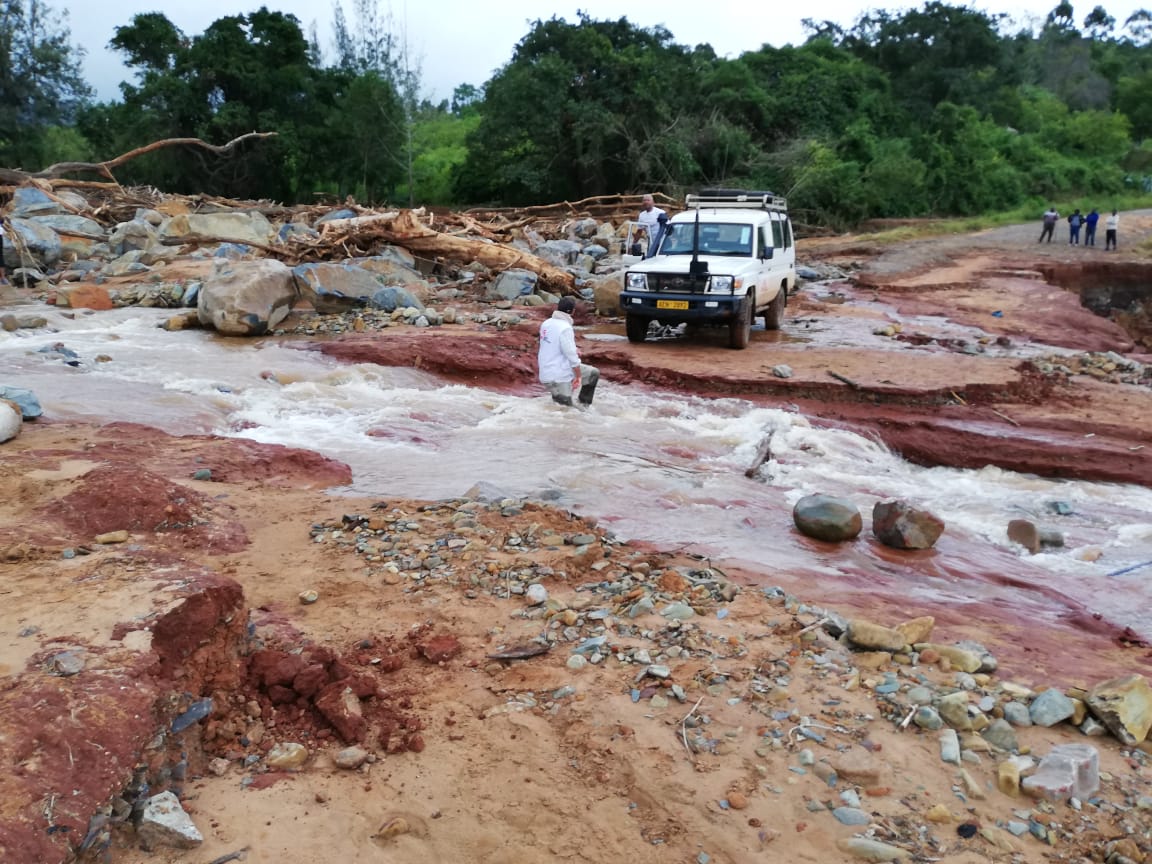
This catastrophe, the first of its kind to be experienced in the area, leaving a trail of destruction in the community and changed the lives of many in an instant. In some communities, houses, shops and factories were completely destroyed, and all that remains are rocks and wood.
Many lost everything including food, shelter, clothing and their sources of livelihood. Life-saving medication, for chronic diseases such as hypertension and diabetes, washed away.
As news filtered through of the destruction in Chimanimani, a Doctors Without Borders (MSF) team quickly travelled to the area. Yet with roads and bridges destroyed, Chimanimani was completely cut off from access, making it difficult for humanitarian actors to quickly provide aid.
With the health ministry, MSF set up a stabilization centre at ‘Skyline’ on the outskirts of Chimanimani. The injured were ferried by Army and private helicopters from inside Chimanimani to ‘Skyline’, with the most seriously injured being transferred to the nearest referral hospital in Chipinge.
A total of 80 patients were airlifted to medical centres while a total of 232 patients had received medical assistance from a combined effort of various medical practitioners as of 26 March 2019.
With water pipes destroyed by the cyclone, the lack of clean water sources in Chimanimani is a concern for water-borne diseases like cholera and typhoid. There are still bodies lying buried under rubble in river beds, which also contaminates drinking water.
MSF teams are supporting the Ministry of Health and Child Care to provide medical assistance including the provision of chronic care medicines to people that were affected by Cyclone Idai.
Where the roads are inaccessible, the teams are resorting to walking on foot or cycling to reach patients in affected areas but difficult to reach. MSF will also continue to focus on Water, Sanitation and Hygiene (WASH) activities and continuity of chronic care and will remain alert for any other additional needs.
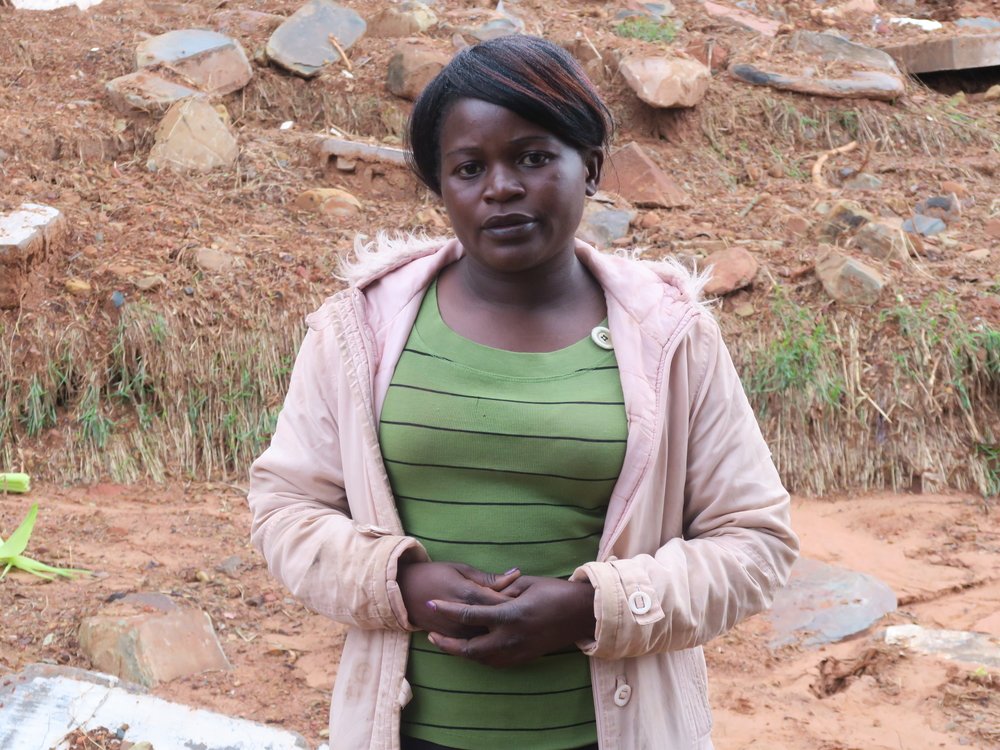
Regina: “I continue to hear earth tremors during the night”
Regina Dirani (37) from Ngangu, Chimanimani, had her home destroyed by the cyclone. What started as the sound of a heavy truck and then felt like an earthquake lead to the destruction of her house and everything inside. She continues to hear earth tremors each night between 12 midnight and 2 am, a clear sign of mental trauma.
Before the disaster, Regina was earning a living as a cross border trader. However, her identity documents including her passport were lost and she fears being unable to provide for her family. She feels stranded and wants to leave the area as soon as possible but is unable to do so.
She worries about the lack of food and is worried about disease outbreaks like cholera or typhoid, as there is no clean drinking water and all toilets were destroyed.
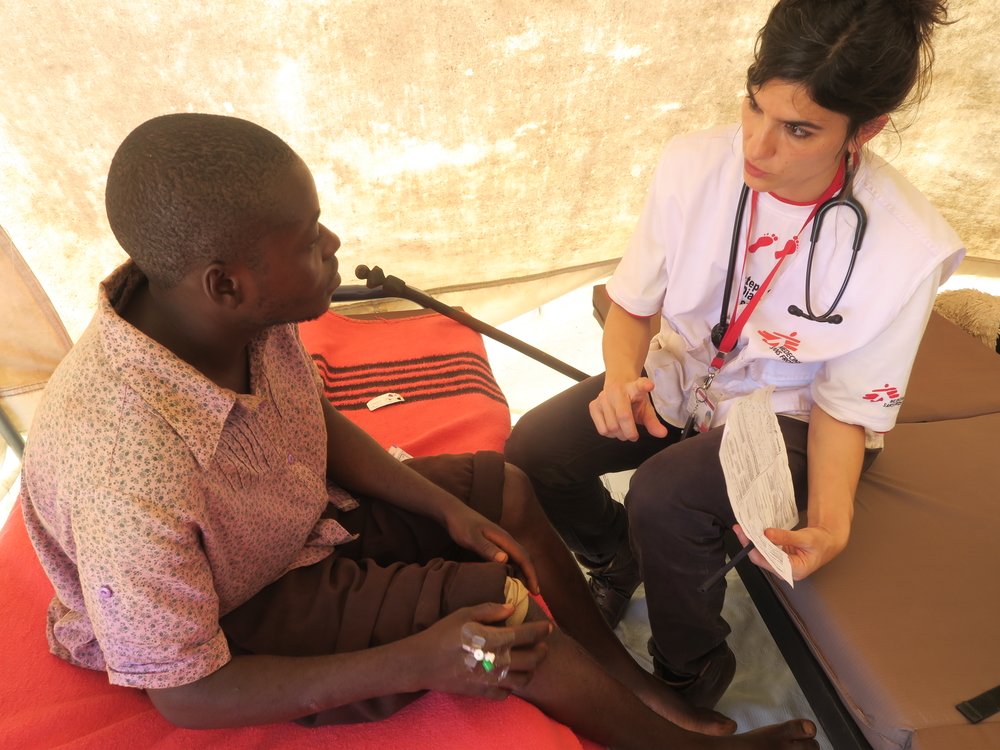
Peter: “If I try to sleep, I continue to see visions of bodies being swept away in the floods”
Peter Matonhodze (25) from Runyowani village in Chimanimani, eastern Zimbabwe is grateful to be alive after narrowly escaping death. Peter was swept away by heavy rains caused by the cyclone, as he tried to run home from his banana plantation in nearby Copper.
He was luckily caught on a tree, which he climbed up for safety, and spent the next three days there, without food or water.
Speaking from the ‘Skyline’ stabilisation centre, where Peter received medical treatment from MSF, a visibly shaken Peter explains: “In Copper, I left my brothers and their families. I fear that I might have lost all of them and I might be the only person in my family who is still alive.”
While his wife and two children thankfully survived, scenes of people being swept away in the floods continue to haunt him.
“My mind is still unsettled. The memories are still fresh. If I try to sleep, I continue to see the pictures and visions of bodies being swept away in the floods. I see visions as if I am playing a film of what happened. I also saw cars being washed away and some were hitting the tree that I was climbing,” explains Peter.
Peter has lost everything to the rains: his identity documents were swept away, his maize field and banana plantations were destroyed and he does not know how he is going to survive.
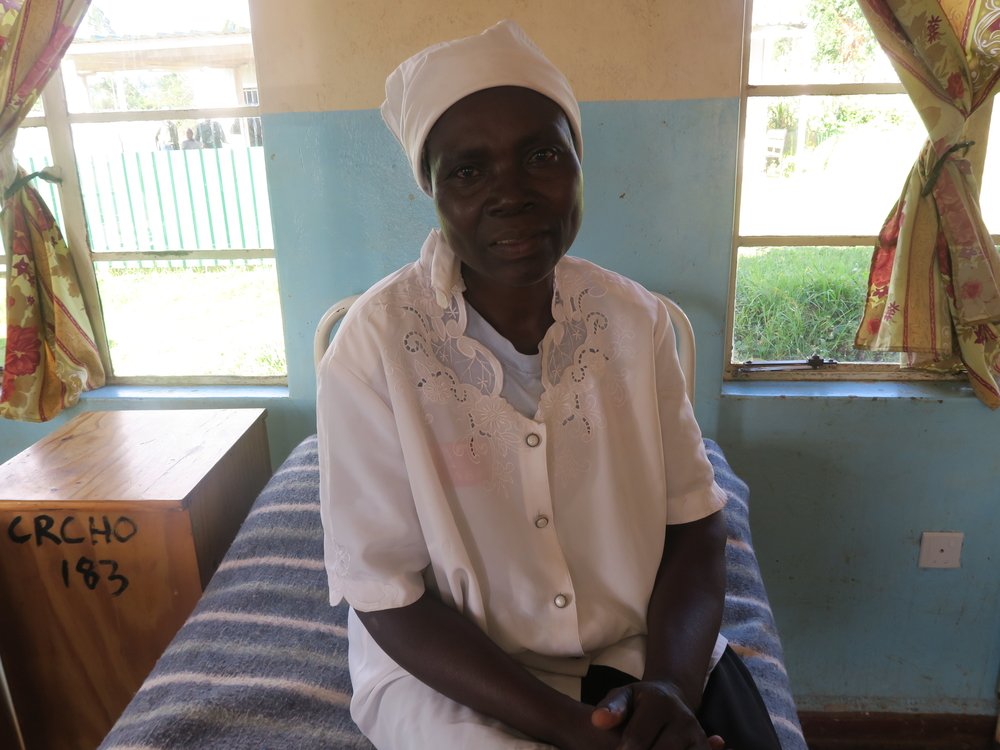
Rudo: “I was worried because I didn’t know how I was going to survive after losing my medication
Rudo Mukuruzadu of Ngangu suburb in Chimanimani lost a bag containing all her medicines for hypertension and medical records after it was washed away by the rains caused by the cyclone.
Tormented that she may not be able to remember all the medicines she used to take, Rudo decided to go to Chimanimani hospital to check if they still had her medical records. MSF teams have been supporting health centres in Chimanimani by providing medical assistance including providing chronic care medicines to survivors of cyclone Idai.
The nurses found that Rudo’s blood pressure was very high. “I think my blood pressure shot up because of the stress induced by cyclone Idai. I was worried because I didn’t know how I was going to survive after losing my medication", says Rudo. "I am grateful because the nurses and doctors have really assisted me. I feel like my life is in their hands", she adds.
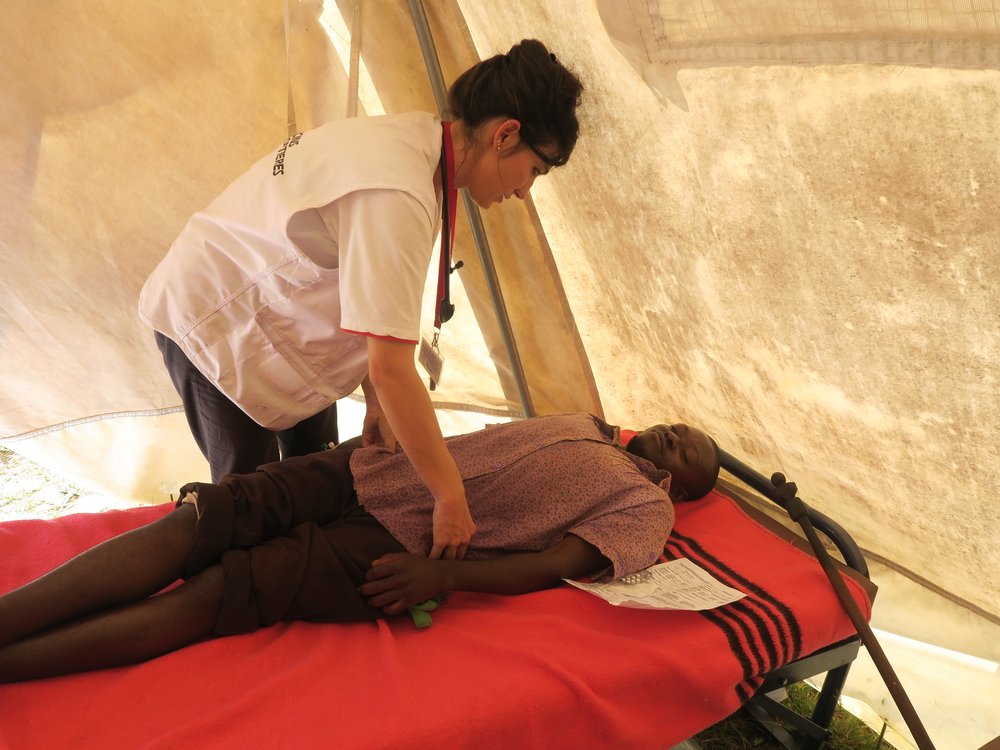
Dr Virginia Moneti, MSF doctor: “Most patients we saw were traumatized
Virginia, who works in MSF’s non-communicable disease (NCD) project in nearby Chipinge was one of the medical doctors treating patients brought to ‘Skyline’, the stabilisation centre set up by MSF to provide medical assistance to survivors of Cyclone Idai in Chimanimani.
“We saw many patients who were traumatized, with injuries and wounds that were infected because they had spent days without treatment. Others had fractures and needed to be transferred immediately,” she says.
“Many people in Chimanimani spent days alone isolated from the world. They suffered alone. Some took time to determine whether their relatives were alive or not,” she explains.
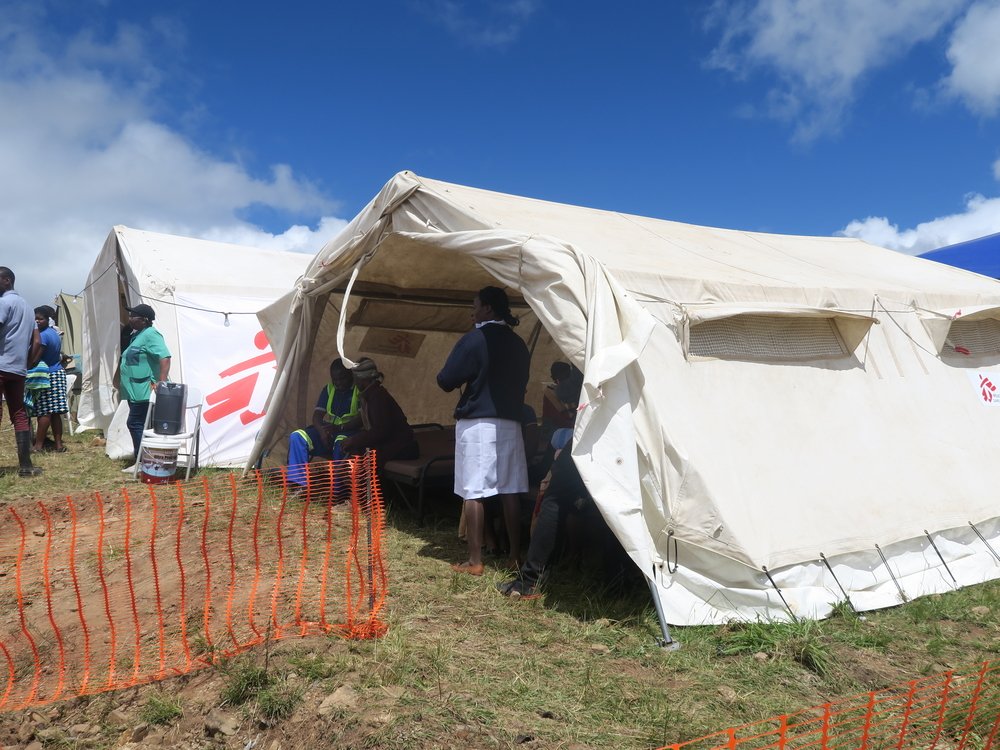
Dr Elizabeth Irungu, Medical Activity Manager, MSF, Chipinge Sub Base, Mutare Project
Elizabeth visited Ngorima clinic as part of an MSF outreach team which is visiting clinics and communities in Chimanimani which were cut off from all road access after the cyclone.
We met the Sister in charge and other villagers who narrated their experience during the cyclone and we were able to do an assessment and establish the clinic needs as well as surrounding satellite sites. Residents narrated horror stories of an entire family swept away, of recovered bodies and those missing. A heroic story of a family of six rescued by neighbours who pulled them using a rope from the rooftop of their house made me proud of the humanity of this community. Patients with chronic conditions had run out of medicines and the clinic was low on stocks. A story of two girls who incurred burns and were unable to access the clinic for four days was very sad.
Read more about MSF's activities in Zimbabwe
